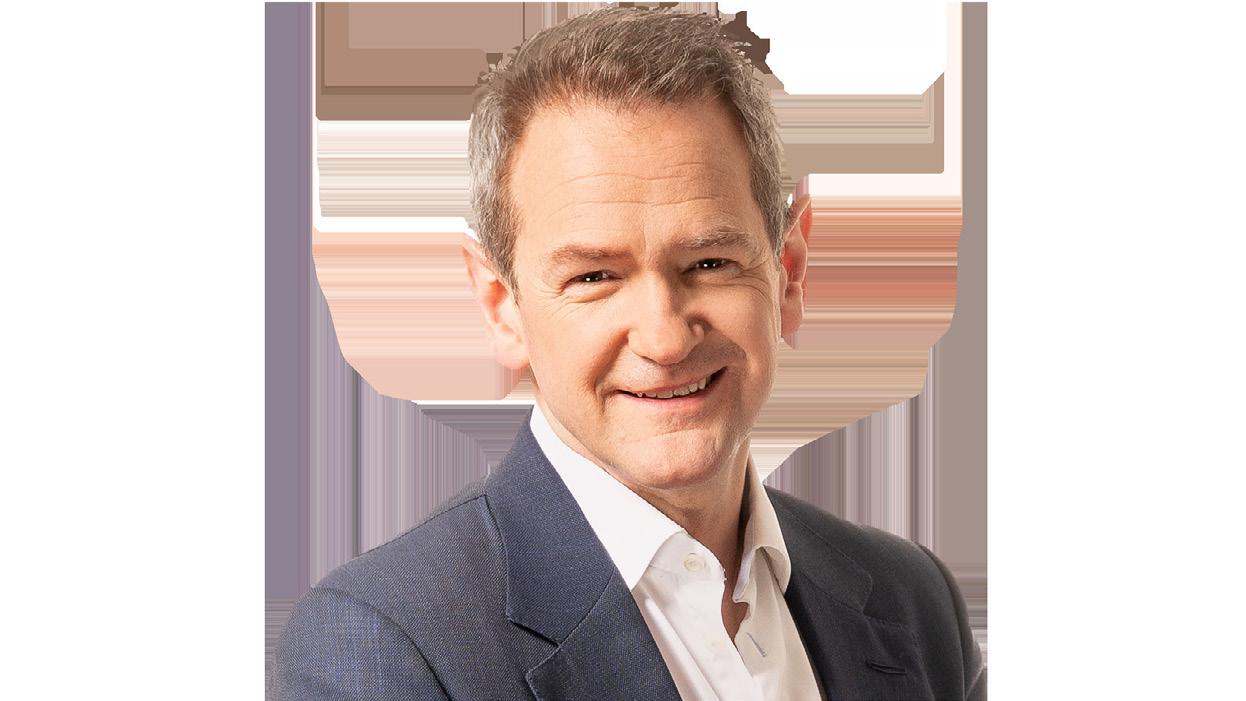


















































































































































































































































































































































































































































































































































































There’s nothing quite like hearing Saint-Saëns’ Third Symphony played live. The orchestra thunders, there’s a sudden silence, and then – with one mighty chord – the organ practically blows the roof off. It’s just one of a whole series of musical surprises in tonight’s stunning concert, from Stravinsky’s brilliant musical card game to the phenomenal Mahan Esfahani bringing the harpsichord powering into the 21st century in Poul Ruders’ gripping new concerto.
STRAVINSKY Jeu de cartes [23’]
POUL RUDERS Concerto for Harpsichord [20’] UK PREMIERE
INTERVAL
SAINT-SAËNS Symphony No3 in C minor Op78 Organ [36’]
Thomas Søndergård Conductor
Mahan Esfahani Harpsichord Royal Scottish National Orchestra
CAIRD HALL, DUNDEE
Thu 6 Oct 2022 7.30pm
USHER HALL, EDINBURGH
Fri 7 Oct 7.30pm
GLASGOW ROYAL CONCERT HALL
Sat 8 Oct 7.30pm
The Glasgow performance will be recorded for the RSNO Archive. Supported by the Iain and Pamela Sinclair Legacy.
If viewing these notes at the concert, please do so considerately and not during performances. Please silence all mobile telephones and alerts, and refrain from taking photographs, without flash, until the end of each piece.
The concert in Dundee is supported by the Northwood Charitable Trust, R J Larg Family Trust, Tay Charitable Trust and Dundee Leisure & Culture Major Music Award

Supported by Jennie S. Gordon Memorial Foundation

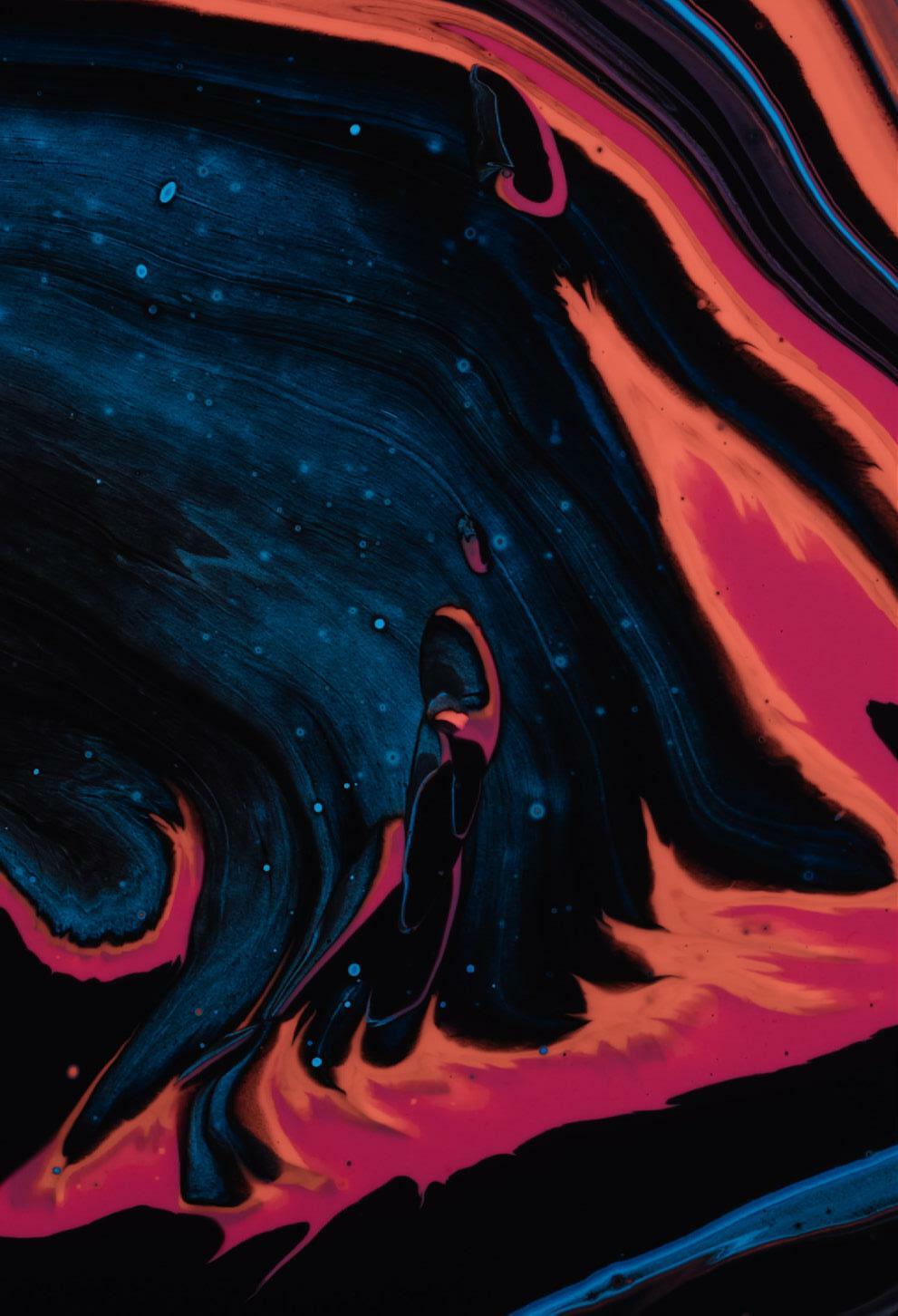
Welcome to this evening’s concert, with a programme that celebrates the role of keyboard instruments in orchestral music. Tonight we will enjoy the UK premiere of Poul Ruders’ Concerto for Harpsichord performed by Mahan Esfahani, making his RSNO debut. The piece was co-commissioned by the RSNO and the Aarhus Symphony Orchestra and was written especially for Mahan. I can’t wait to see him bring it to life with his trademark exuberance. We’re thrilled also to be making the most of some of the great concert-hall organs that we have in Scotland in Saint-Saëns’ Symphony No3.
You’ll read of Poul’s interest in restoration, giving revived identities to ideas and objects that once seemed outdated. This is something we’re lucky to experience constantly in classical music, as artists and conductors interpret works and often transform the familiar into something brand new. In both recordings and live on stage, our musicians continue to embrace this and each week I arrive to hear something fresh.
The RSNO has recently worked on a number of new releases, including the second volume of Sir Roger Norrington and Francesca Dego’s recordings of Mozart’s violin concertos, which has received some fantastic reviews. You can now also pre-order RSNO Assistant Conductor Kellen Gray’s recording of music by George Walker, William Grant Still and William Levi Dawson, to be released at the end of the month on Linn Records. As Kellen starts his second Season with the RSNO, we also look forward to seeing him conduct this programme live in November. Just as it is a pleasure to come together on a weekly basis for our Season concerts, it is also heartening to see the Orchestra’s reach continue to grow nationally and internationally with these eclectic new releases.
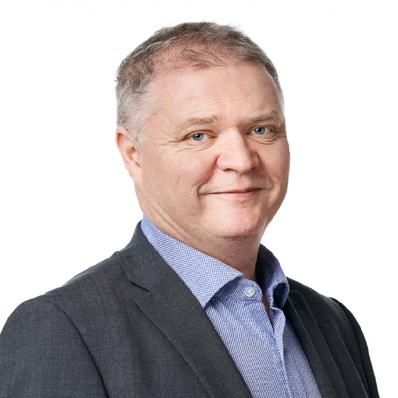









































































Thomas Søndergård
MUSIC DIRECTOR Elim Chan
PRINCIPAL GUEST CONDUCTOR Neeme Järvi
CONDUCTOR LAUREATE Alexander Lazarev
CONDUCTOR EMERITUS Kellen Gray
ASSISTANT CONDUCTOR Stephen Doughty
CHORUS DIRECTOR, RSNO CHORUS Patrick Barrett
CHORUS DIRECTOR, RSNO JUNIOR CHORUS
FIRST VIOLIN
Maya Iwabuchi LEADER
Sharon Roffman LEADER 9 Lena Zeliszewska 10 ASSOCIATE LEADER Tamás Fejes ASSISTANT LEADER 11 Patrick Curlett ASSISTANT PRINCIPAL 12 Caroline Parry 13 Ursula Heidecker Allen 14 Lorna Rough 15 Susannah Lowdon 16 Alan Manson 17 Elizabeth Bamping 18
SECOND VIOLIN
Jacqueline Speirs 19 ASSOCIATE PRINCIPAL Marion Wilson ASSOCIATE PRINCIPAL 20 Harriet Hunter SUB PRINCIPAL 21 Nigel Mason 22 Wanda Wojtasinska 23 Paul Medd 24 Anne Bünemann 25 Sophie Lang 26 Robin Wilson 27 Emily Nenniger
Tom Dunn PRINCIPAL 29 Felix Tanner
ASSOCIATE PRINCIPAL VIOLA 30 Asher Zaccardelli
ASSISTANT PRINCIPAL 31 Susan Buchan SUB PRINCIPAL 32 Lisa Rourke SUB PRINCIPAL 33 Nicola McWhirter 34 Claire Dunn 35 Katherine Wren 36 Maria Trittinger 37 Francesca Hunt 38
Betsy Taylor ASSOCIATE PRINCIPAL 39 Kennedy Leitch ASSISTANT PRINCIPAL 40 Rachael Lee 41 Sarah Digger 42 Robert Anderson 43
DOUBLE BASS
Margarida Castro 44 ASSOCIATE PRINCIPAL Michael Rae ASSISTANT PRINCIPAL 45 Sally Davis 46 Aaron Berrera Reyes 47
Katherine Bryan PRINCIPAL 48 Helen Brew ASSOCIATE PRINCIPAL 49 Janet Richardson 50 PRINCIPAL PICCOLO
Adrian Wilson PRINCIPAL 51 Peter Dykes ASSOCIATE PRINCIPAL 52 Henry Clay PRINCIPAL COR ANGLAIS 53
Timothy Orpen 54
PRINCIPAL CLARINET Duncan Swindells 55 PRINCIPAL BASS CLARINET
David Hubbard PRINCIPAL 56 Luis Eisen ASSOCIATE PRINCIPAL 57 Paolo Dutto 58 PRINCIPAL CONTRABASSOON
Christopher Gough PRINCIPAL 59 Alison Murray ASSISTANT PRINCIPAL 60 Andrew McLean 61 ASSOCIATE PRINCIPAL David McClenaghan 62 Martin Murphy ASSISTANT PRINCIPAL 63
Christopher Hart PRINCIPAL 64 Marcus Pope SUB PRINCIPAL 65 Jason Lewis ASSOCIATE PRINCIPAL 66
Dávur Juul Magnussen PRINCIPAL 67 Lance Green ASSOCIATE PRINCIPAL 68 Alastair Sinclair 69 PRINCIPAL BASS TROMBONE
TUBA John Whitener PRINCIPAL 70
TIMPANI Paul Philbert PRINCIPAL 71
Simon Lowdon PRINCIPAL 72 John Poulter ASSOCIATE PRINCIPAL 73

New York, 27 April 1937
DURATION 23 minutes
First Deal:
Introduction. Alla breve –Pas d’action. Meno mosso –Dance variation. Moderato assai –Dance of the Joker. Stringendo –Waltz-Coda. Tranquillo –
Second Deal:
Introduction. Alla breve –March. Marcia –Variation I. Allegretto –Variation II –Variation III –Variation IV –Variation V. Sostenuto e pesante –Coda. Più mosso –Reprise of March. Marcia –Ensemble. Con moto –
Third Deal :
Introduction. Alla breve –Waltz. Valse –
Battle between Spades and Hearts. Presto –Final Dance –Coda. Tempo del principio
It was – so the story goes – in the back of a Paris taxi in 1936 that inspiration struck Igor Stravinsky for his ballet score Jeu de cartes (or ‘Game of Cards’). He was so delighted with his idea that he invited the somewhat bewildered cabbie into a nearby café for a pre-dinner apéritif.
Stravinsky was living in the French capital at the time, and had been asked the previous November to write a new score for the recently established American Ballet, which had enlisted eminent choreographer George Balanchine to create the dance to go with it. The composer was somewhat at a loss for a possible scenario, however, so you can understand his relief at finally thinking one up.
And what he came up with was based around what Stravinsky described as ‘my favourite pastime in the rest periods between composition’: poker. The dancers would be dressed as playing cards, and the three short movements of his score would be entitled ‘deals’, charting the course of a poker game itself. There the card-game analogy breaks down a bit, however, since there’s frankly little in the way of serious plot. Instead, Stravinsky focuses on characters, especially the chameleon-like, apparently all-powerful Joker, who can always ensure he wins by transforming himself into any other card, as well as the lower-ranking cards who can only overcome the Joker’s power by combining their forces.
The outline drew from Stravinsky one of his wittiest, most sparkling scores, and though it’s sometimes described as one of his least profound, there’s a far more serious side to Jeu de cartes. The composer was growing increasingly alarmed at the rise of the Third Reich and its apparently all-powerful Führer, and indeed left Europe for the USA just three
years after he composed the ballet. You can’t help but see connections between Jeu de cartes’ malevolent Joker and the figure who would plunge the globe into World War II, parallels that Stravinsky himself drew attention to in the quotation from La Fontaine’s verse fable ‘The Wolves and the Sheep’ that he included at the front of his score: ‘We must wage continual war against the wicked. Peace in itself is a fine thing, I agree, but what use can it be with enemies who do not keep their word?’
Jeu de cartes was also a score in which Stravinsky shamelessly plundered the music of earlier composers, starting with the famous four-note ‘fate’ motif from the beginning of Beethoven’s Fifth Symphony, recast as a bright and breezy brassy fanfare that opens each of Jeu de cartes’ ‘deals’, and also brings the work to its rather abrupt conclusion. Loud, screaming woodwind and dashing strings accompany the entry of the Joker in the first ‘deal’, and Stravinsky returns to his affectionate pilfering in the third ‘deal’, with half-heard memories of Ravel’s La valse and a more thorough workthrough of a famous melody from Rossini’s The Barber of Seville
© David Kettle20 Jan Franklin D Roosevelt was sworn in for a second term as US President
23 Jan 17 leading Communists went on trial in Moscow, accused of participating in a plot led by Leon Trotsky to overthrow Joseph Stalin’s regime
6 Feb John Steinbeck’s novella Of Mice and Men was first published
16 Feb Wallace H Carothers received a patent for nylon
12 Apr In Rugby, Frank Whittle groundtested the first jet engine designed for an aircraft
26 Apr In the Spanish Civil War, the Nazi Luftwaffe bombed Guernica in support of the Francoists, killing hundreds
6 May The German airship Hindenburg burst into flames when mooring at Lakehurst, New Jersey; 13 passengers and 22 crew died
12 May Coronation of King George VI at Westminster Abbey, London
28 May Neville Chamberlain became UK Prime Minister following the retirement of Stanley Baldwin
21 Sep J R R Tolkien’s The Hobbit was first published
4 Dec Dundee-based D C Thomson produced the first issue of The Dandy comic
29 Dec The Constitution of Ireland came into force; the Irish Free State became Ireland and Éamon de Valera the first Taoiseach
Aarhus Symphony Orchestra, 10 September 2020 UK PREMIERE
Should one, when listening to my Concerto for Harpsichord and Symphony Orchestra, entertain the suspicion that the composer has brought the past into the present – and vice versa – then one is not completely off the mark. I’ve always been fascinated by the form of restoration architecture, with which old, disused but conservation-worthy buildings, such as churches, factories and warehouses, are being given a new identity and purpose through a happy symbiosis between contemporary ideas and inventions – a modernity that hasn’t congealed through blind self-indulgence.
The harpsichord is an instrument normally associated with music from the Baroque; in other words, a ‘period instrument’ which, for better or worse, is marooned in the past. However, new compositions have been written for the harpsichord, solo and with ensemble, but not until well into the 20th century.
As a young man I myself played the harpsichord and developed a solid ‘hands on’ (literally) relationship with the instrument, but didn’t compose anything for it till 1985, the year when Book 1 of Cembal d’Amore came about, a piece in which the past meets the present in the guise of a piano! There are now two Books entitled Cembal d’Amore. And that was enough harpsichord, I thought. But little did I know …
Because one day a few years ago, a commission from the Aarhus Symphony Orchestra popped up on the computer screen – a new piece for harpsichord and symphony orchestra, starring the phenomenal harpsichord virtuoso Mahan Esfahani. Now, there was an offer I couldn’t refuse, a welltimed opportunity for me to create the perfect symbiosis between ‘yesterday’ and ‘today’ (but without slipping into hackneyed neoclassicism), not only stylistically, but also on a practical level. The harpsichord was never supposed to appear with the modern symphony orchestra – an obvious balance issue springs to mind – but involving a carefully prepared and controlled electronic amplification, a new world of constellations between harpsichord and orchestra presents itself, unexpected sonorous alliances that would be unthinkable (and impossible) without amplification.
Selected purists and period-instrument fundamentalists will be horrified … the mere thought is abominable. But so be it. I could, however, be granted a ‘reduced sentence’, observing the time-honoured order of movements in a classical concerto, in which the first movement is fast, the second slow, and the third, well … just you wait …
Poul Ruders’ Concerto for Harpsichord was co-commissioned for Mahan Esfahani by the Aarhus Symphony Orchestra and the Royal Scottish National Orchestra.
and literally: confronting American minimalism in the early 80s and developing his own perspective; making London his spiritual home later in that decade and employing the peculiar English technique of ‘change-ringing’; exploring – in his own words – female values in the 90s as a vital counterbalance to the world of violence and desolation he had opened up in his previous works.
How does one describe a phenomenon like Poul Ruders? No sooner have you found the mot juste than something in the music clamours to contradict it. He can be gloriously, explosively extrovert one minute – withdrawn, haunted, intently inward-looking the next. Super-abundant high spirits alternate with pained, almost expressionistic lyricism; simplicity and directness with astringent irony.
Try and restrict the language to technical matters and the paradoxes continue: few composers on the contemporary scene are so versatile, so accomplished, so obviously in command of their tools and materials, and yet the music can give the impression of dancing on the edge of a precipice. It is a language of extremes, commandingly integrated – and perhaps all the more startling for that.
Finding his voice has taken Ruders longer than many other composers, he admits, but it has also been an adventure – a period of experimentation and discovery which has led him in all manner of directions, metaphorically
In the opera The Handmaid’s Tale (1996-8), more than in any of his other works, Ruders draws together the themes which have preoccupied him for so long: the apocalyptic, the elemental and the human, aching tenderness, grotesque irony, despair. However, also, as in the closing pages of the First Symphony (1989), a flicker of hope. For Ruders, perhaps, ‘The One True Path’ is that there is no path at all. And thus the adventure continues.
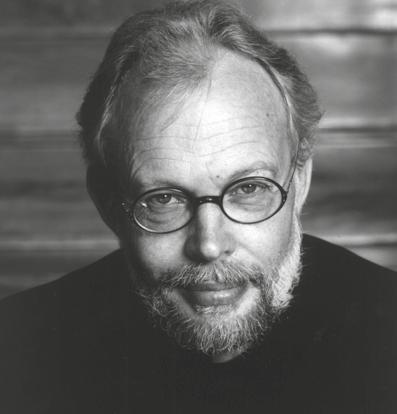 © Stephen Johnson
© Stephen Johnson
sonata. Fellow French composer Hector Berlioz summed him up succinctly when he wrote that ‘Saint-Saëns knows everything, but lacks inexperience’. Franz Liszt, the most celebrated pianist of the day, felt humbled by Saint-Saëns’ unparalleled ability to improvise music of extraordinary complexity, and it was to Liszt’s memory that the Frenchman dedicated his majestic Third Symphony.
London, 19 May 1886
DURATION 36 minutes
1. Adagio–Allegro moderato–Poco adagio
2. Allegro moderato–Presto–Maestoso–Allegro
Camille Saint-Saëns was one of the great polymaths of the 19th century. Quite apart from his exceptional skills as a composer, pianist, organist, conductor and distinguished pedagogue, he was also a fluent multi-linguist, a consulted authority on literature and the arts in general, a notable author and poet, and could hold his own with experts in a wide range of disciplines, most notably archaeology and astronomy. He possessed both visual and aural photographic memory and phenomenal powers of recall.
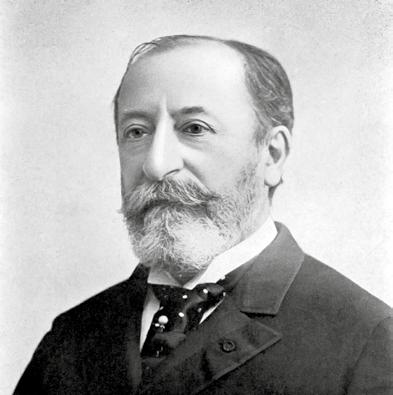
Saint-Saëns also possessed all the distinctive qualities of a French composer – colourful yet tasteful, flamboyant yet refined, perfumed yet elegant. However, his most natural mediums of expression were the core genres of his German predecessors – the concerto, symphony and
Saint-Saëns’ dedication was no mere homage, but a reflection of his symphony ’s indebtedness to Liszt’s formal innovations. Although ostensibly cast in the standard Romantic four movements – an arresting opening allegro, followed by a reflective adagio, lively scherzo and heroic finale – Saint-Saëns takes Liszt’s lead in deriving all the main themes from the same fundamental melodic shape (an ingenious process known as thematic transformation). He also blurs their structural distinction by running the opening and closing pairs of movements together. Even for a composer of Saint-Saëns’ towering genius this was a demanding undertaking, so while work on his magnum opus was progressing, he took some time out to compose by way of light relief what turned out (much to his chagrin) to be his most popular work – Carnival of the Animals
Composed for the Royal Philharmonic Society’s 73rd anniversary, the Third Symphony ’s opening theme came to the composer (rather appropriately) as he strolled down a London street one rainy day. As was common in British musical circles, Saint-Saëns was invited to provide a programme note for the premiere, and felt it was such a splendid idea that he encouraged several French musical organisations to take up the practice, much to the disapproval of the young Claude Debussy, who felt passionately that music should stand on its own, free of literary annotation.
Saint-Saëns directed the premiere from the podium, although he would dearly have loved to play the organ part that emerges spectacularly in the finale, especially as the organ in St James’ Hall (the chosen venue) had only recently been installed and he was itching to try it out. The premiere was a blazing success, and although it took France a year to catch up, the symphony created such a sensation that three repeat performances were swiftly arranged during the same season.
Laying down the gauntlet with a brooding, stormy opening movement lacerated by shafts of orchestral lightning, Saint-Saëns releases the accumulated musical tension in a slow movement of gentle melodic radiance that breathes (according to the composer) ‘an air of pure tranquillity’. The scherzo’s fiery temperament and unstoppable forward momentum is alleviated by the glittering sound of two pianos scampering after one another in the central trio section. Then, just as the music peters away following a heartfelt string chorale, Saint-Saëns plays his coup de théâtre as a massive chord from the organ sets up the allconquering finale (there’s even a jaunty fugue along the way), culminating in one of the most thrilling perorations in the orchestral repertoire.
© Julian Haylock5 Jan Robert Louis Stevenson’s Strange
Case of Dr Jekyll and Mr Hyde was published in the USA: it was published in the UK four days later
29 Jan Karl Benz patented the first successful petrol-driven car, the Benz Patent-Motorwagen
29 Mar Wilhelm Steinitz became the first recognised World Chess Champion
8 May American pharmacist Dr John Pemberton invented a carbonated drink that would become known as Coca-Cola, first advertised on 29 May
25 Jun Arturo Toscanini made his conducting debut, with an Italian opera company in Rio de Janeiro
30 Jun The Royal Holloway College for women was opened by Queen Victoria
25 Jul Conservative Robert Cecil, 3rd Marquess of Salisbury, became the UK’s 30th Prime Minister
9 Sep The Berne Convention for the Protection of Literary and Artistic Works was signed
28 Oct The Statue of Liberty, a gift from France, was dedicated by US President Grover Cleveland
30 Nov The Folies Bergère staged its first revue in Paris
11 Dec Founded as Dial Square, what was to become on 25 Dec the football club known as Royal Arsenal played its first match
Concert Hall LA, with Emmanuel Pahud at the Brucknerhaus Linz, a Scarlatti Day curated for the Barbican, and residencies with the Royal Liverpool Philharmonic and Royal Northern Sinfonia. Further invitations include the world premiere of Miroslav Srnka’s harpsichord concerto with the Gürzenich-Orchester Köln under François-Xavier Roth, and the world premiere of Bent Sørensen’s new harpsichord concerto with the Bergen Philharmonic.
Mahan Esfahani has made it his life’s mission to rehabilitate the harpsichord in the mainstream of concert instruments, and to that end his creative programming and work in commissioning new works have drawn the attention of critics and audiences across Europe, Asia and North America. He was the first and only harpsichordist to be a BBC New Generation Artist (2008-10), a Borletti-Buitoni prize winner (2009) and a nominee for Gramophone Artist of the Year (2014, 2015 and 2017).
His work for the harpsichord has resulted in recitals in most of the world’s major concert series and concert halls. Recent highlights include the premiere of Poul Ruders’ Concerto for Harpsichord with the Aarhus Symphony Orchestra in Denmark, a tour and BBC Prom of harpsichord concertos with the Manchester Collective, works by J C Bach and J C F Bach with Riccardo Minasi and the Orchestra La Scintilla at Zürich Opera House, Poulenc’s Concert champêtre with the Prague Radio Symphony Orchestra, his Vienna Musikverein debut and recitals at Wigmore Hall, De Bijloke Ghent, Alte Oper Frankfurt and Walt Disney
Particularly renowned for his championing of contemporary music, Esfahani has commissioned and premiered works from such composers as George Lewis, Bent Sørensen, Anahita Abbasi, Sunleif Rasmussen, Daniel Kidane, Laurence Osborn, Gary Carpenter, Harold Meltzer, Elena Kats-Chernin and Miroslav Srnka.
His richly varied discography includes seven critically acclaimed recordings for Hyperion and Deutsche Grammophon, garnering one Gramophone award, two BBC Music Magazine Awards, a Diapason d’Or and ‘Choc de Classica’ in France, and an International Classical Music Award.
Esfahani studied musicology and history at Stanford University, where he first came into contact with the harpsichord in the class of Elaine Thornburgh. Following his decision to abandon the law for music, he studied harpsichord privately in Boston with Peter Watchorn then with celebrated Czech harpsichordist Zuzana Růžičková. Following three years as Artist-in-Residence at New College, Oxford, he continues his academic associations as an honorary member at Keble College, Oxford, and as professor at the Guildhall School of Music and Drama. Born in Tehran in 1984 and raised in the United States, Mahan Esfahani lived in Milan and London before taking up residence in Prague.
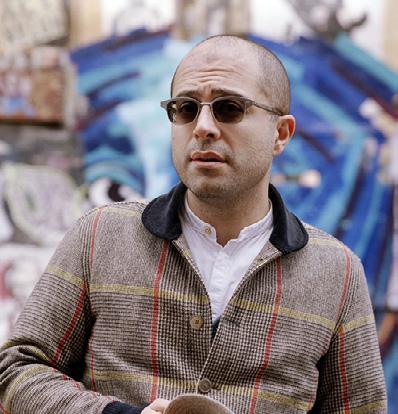
In November 2021 Thomas conducted the RSNO in the world premiere of Detlev Glanert’s Violin Concerto No2 To the Immortal Beloved (with Midori) during the 2021 United Nations Climate Change Conference (COP26) held in Glasgow. Recent highlights with the RSNO have included tours to China and the US, the premiere of Wynton Marsalis’ Violin Concerto with Nicola Benedetti (also at the 2022 BBC Proms) and much-praised performances at the Edinburgh Festival.
Danish conductor Thomas Søndergård has been Music Director of the RSNO since the 2018:19 Season, following six seasons as Principal Guest Conductor. From 2012 to 2018 he was Principal Conductor of the BBC National Orchestra of Wales (BBC NOW), after stepping down as Principal Conductor and Musical Advisor of the Norwegian Radio Orchestra. He becomes Music Director of the Minnesota Orchestra in September 2023.
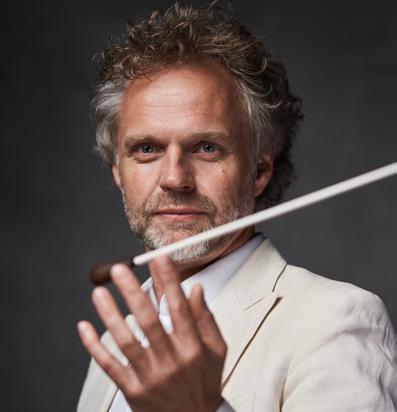
Thomas has appeared with many notable orchestras in leading European centres, such as Berlin (including the Berliner Philharmoniker, Rundfunk-Sinfonieorchester Berlin, Mahler Chamber Orchestra), Leipzig (Gewandhausorchester), Paris (Orchestre National de France), London (London Philharmonic, BBC Symphony, London Symphony and Philharmonia), Amsterdam and Rotterdam (Royal Concertgebouw, Netherlands Philharmonic, Rotterdam Philharmonic), and throughout Scandinavia. North American appearances have included the orchestras of Chicago, Toronto, Atlanta, Vancouver, Houston and Seattle.
Following his acclaimed debut for Royal Danish Opera with Poul Ruders’ Kafka’s Trial, Thomas has returned regularly to conduct repertoire ranging from contemporary to Le nozze di Figaro, Il barbiere di Siviglia, La bohème, The Cunning Little Vixen and Il viaggio a Reims, and has made short concert tours with the Royal Danish Orchestra. He has also enjoyed successful collaborations with Norwegian Opera and Royal Swedish Opera. His Stockholm productions of Tosca and Turandot (both with Nina Stemme) led to his Bayerische Staatsoper debut, conducting main season and Opera Festival performances of Turandot with Stemme. He made his Deutsche Oper Berlin debut with the world premiere of Andrea Lorenzo Scartazzini’s Edward II and has since returned for Berlioz’s Romeo and Juliet
Thomas has recorded with violinist Vilde Frang and the WDR Köln and cellist Johannes Moser and the Rundfunk-Sinfonieorchester Berlin, and the music of Poul Ruders with the Aarhus Symphony, Norwegian Radio Orchestra and Royal Danish Opera. For Linn Records he has recorded Sibelius symphonies and tone poems with the BBC NOW, and Prokofiev symphonies 1 and 5 and Richard Strauss’ Ein Heldenleben with the RSNO.
Formed in 1891 as the Scottish Orchestra, the company became the Scottish National Orchestra in 1950, and was awarded Royal Patronage in 1977. The Orchestra’s artistic team is led by Danish conductor Thomas Søndergård, who was appointed RSNO Music Director in October 2018, having previously held the position of Principal Guest Conductor. Hong Kong-born conductor Elim Chan succeeds Søndergård as Principal Guest Conductor.

The RSNO performs across Scotland, including concerts in Glasgow, Edinburgh, Dundee, Aberdeen, Perth and Inverness. The Orchestra appears regularly at the Edinburgh International Festival and the BBC Proms, and has made recent tours to the USA, China and Europe.
The Orchestra is joined for choral performances by the RSNO Chorus, directed by Stephen Doughty. The RSNO Chorus evolved from a choir formed in 1843 to sing the first full performance of Handel’s Messiah in Scotland. Today, the RSNO Chorus is one of the most distinguished large symphonic choruses in Britain. The Chorus has performed nearly every work in the standard choral repertoire, along with contemporary works by composers including John Adams, Howard Shore and Sir James MacMillan.
The RSNO has a worldwide reputation for the quality of its recordings, receiving a 2020 Gramophone Classical Music Award for Chopin’s Piano Concertos (soloist: Benjamin Grosvenor), conducted by Elim Chan; two Diapason d’Or awards for Symphonic Music (Denève/Roussel 2007; Denève/Debussy 2012) and eight GRAMMY Awards nominations. Over 200 releases are available, including Thomas Søndergård conducting Strauss (Ein Heldenleben, Der Rosenkavalier Suite) and Prokofiev (Symphonies Nos1 and 5), the complete symphonies of Sibelius (Gibson), Prokofiev (Järvi), Bruckner (Tintner) and Roussel (Denève), as well as further discs championing the music of William Grant Still (Eisenberg), Xiaogang Ye (Serebrier) and Thomas Wilson (Macdonald).
The RSNO’s pioneering learning and engagement programme, Music for Life, aims to engage the people of Scotland with music across key stages of life: Early Years, Nurseries and Schools, Teenagers and Students, Families, Accessing Lives, Working Lives and Retired and Later Life. The team is committed to placing the Orchestra at the centre of Scottish communities via workshops and annual residencies.
FIRST VIOLIN
Sharon Roffman
LEADER
Lena Zeliszewska
ASSOCIATE LEADER
Tamás Fejes
ASSISTANT LEADER
Evgeny Makhtin Patrick Curlett
Joonas Pekonen Michelle Dierx
Lorna Rough Alan Manson Elizabeth Bamping Susannah Lowdon Caroline Parry Ursula Heidecker Allen Wen Wang
Emily Davis
GUEST PRINCIPAL Jacqueline Speirs Marion Wilson Anne Bünemann Harriet Hunter Robin Wilson Emily Nenniger Nigel Mason Sophie Lang Paul Medd John Robinson Colin McKee
VIOLA
Tom Dunn
PRINCIPAL
Felix Tanner
Asher Zaccardelli Lisa Rourke Matt Johnstone Katherine Wren Nicola McWhirter Francesca Hunt David McCreadie Edward Keenan
Karen Stephenson
GUEST PRINCIPAL Betsy Taylor Kennedy Leitch Rachael Lee Sarah Digger Robert Anderson Miranda Phythian-Adams Sonia Cromarty
DOUBLE BASS
Roberto Carrillo-Garcia
GUEST PRINCIPAL Margarida Castro Michael Rae Tom Berry Christopher Sergeant Brendan Norris FLUTE Katherine Bryan PRINCIPAL Jimena Vicente-Alvarez Adam Richardson
OBOE Adrian Wilson PRINCIPAL Peter Dykes Henry Clay PRINCIPAL COR ANGLAIS
CLARINET Timothy Orpen PRINCIPAL Lewis Graham Duncan Swindells PRINCIPAL BASS CLARINET
BASSOON
David Hubbard PRINCIPAL
Luis Eisen Paolo Dutto PRINCIPAL CONTRABASSOON
HORN Christopher Gough
PRINCIPAL
Alison Murray Andrew McLean David McClenaghan Martin Murphy
TRUMPET
Jason Lewis
ASSOCIATE PRINCIPAL Simon Bird Marcus Pope
TROMBONE
Dávur Juul Magnussen PRINCIPAL Lance Green Alastair Sinclair PRINCIPAL BASS TROMBONE
TUBA John Whitener PRINCIPAL
TIMPANI Paul Philbert PRINCIPAL
PERCUSSION Simon Lowdon PRINCIPAL John Poulter
HARP Pippa Tunnell
PIANO/CELESTE
Lynda Cochrane Judith Keaney
ORGAN Michael Bawtree
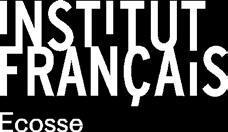


I am honoured and extremely proud to be Music Director of the RSNO. It is through the continued generosity of you, our friends, donors and supporters, that we can continue to achieve and realise the most ambitious goals of the Orchestra.
One of the wonders of the RSNO is how it brings high-quality music not only to concert halls, but to the wider community. From hospital settings to care homes, from our Astar app for families with newborns to our National Schools Concert Programme, our music touches so many lives in Scotland and beyond.

Your support is the cornerstone of all that we do, as it allows us to continually build and develop.
Thank you for being part of this wonderful Orchestra’s journey, as we adapt and grow towards a bright future.
Thomas Søndergård MUSIC DIRECTOR, RSNOThe RSNO Conductors’ Circle is an inspirational group of individual supporters at the heart of the RSNO’s Individual Giving programme. Our members’ annual philanthropic gifts enable us to realise the Orchestra’s most ambitious goals. Conductors’ Circle members support inspirational concert performances for our audiences alongside transformational education programmes in communities across Scotland, via our ground-breaking initiative Music for Life.
The relationship between the RSNO and Conductors’ Circle members involves exceptional levels of access to all aspects of Orchestra life. We design bespoke private events tailored to individual interests and passions, providing insight into the artistic process and bringing our supporters further into the RSNO family. Members of the Conductors’ Circle benefit from an intimate and long-lasting connection with the RSNO Artistic Team and particularly with RSNO Music Director Thomas Søndergård, Principal Guest Conductor Elim Chan and the many
renowned guest Conductors we are privileged to welcome to the RSNO each year.
The RSNO is very grateful for the continued support of its Conductors’ Circle: Ardgowan Charitable Trust Geoff and Mary Ball Sir Ewan and Lady Brown Stina Bruce Jones Ian and Evelyn Crombie Carol Grigor and the Trustees of Dunard Fund Gavin and Kate Gemmell Kenneth and Julia Greig Ms Chris Grace Hartness Kat Heathcote and Iain Macneil Bruce and Caroline Minto David and Alix Stevenson Eric and Karen Young
We would also like to thank those generous donors who wish to remain anonymous.
For more information on Individual Giving and becoming part of the Conductors’ Circle please contact Jenny McNeely at jenny.mcneely@rsno.org.uk
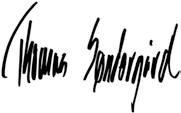
From musical activities in schools with the musicians of the future to working in community venues across Scotland, as a Chair Patron you are enabling RSNO musicians to explore the many facets of their art and the positive impact it has on people’s lives. Supporting an individual musician puts you at the heart of the RSNO family. You’re connected directly to the musicians on stage and get to enjoy privileged behind-the-scenes access. RSNO musicians truly appreciate our Chair Patrons and enjoy developing personal relationships with our supporters.
Assistant Conductor
Kellen Gray
The Solti Foundation Chair
First Violin
Maya Iwabuchi LEADER
Sharon Roffman LEADER
Dunard Fund Chair
Tamás Fejes ASSISTANT LEADER
The Bill and Rosalind Gregson Chair
Patrick Curlett
ASSISTANT PRINCIPAL
The RSNO Circle Chair
Alan Manson
The Hugh and Linda Bruce-Watt Chair
Elizabeth Bamping
The WL and Vera Heywood Chair
Ursula Heidecker Allen
The James and Iris Miller Chair
Lorna Rough
The Hilda Munro Chair
Second Violin
Sophie Lang
The Ian and Evelyn Crombie Chair
Viola
Tom Dunn PRINCIPAL
The Cathy & Keith MacGillivray Chair
Lisa Rourke SUB PRINCIPAL
The Meta Ramsay Chair
Francesca Hunt
The Rolf and Celia Thornqvist Chair
Cello Betsy Taylor
ASSOCIATE PRINCIPAL
The Maxwell Armstrong Chair
Kennedy Leitch
ASSISTANT PRINCIPAL
The David and Anne Smith Chair
Rachael Lee
The Christine and Arthur Hamilton Chair
Double Bass Michael Rae James Wood Bequest Fund Chair
With thanks to the Gregor Forbes Chair for their support of the RSNO Double Bass section
Flute
Katherine Bryan PRINCIPAL
The David and Anne Smith Chair
Helen Brew ASSISTANT PRINCIPAL
The Gordon Fraser Charitable Trust Chair
Oboe
Adrian Wilson PRINCIPAL
The Hedley Wright Chair
Peter Dykes
ASSOCIATE PRINCIPAL
Witherby Publishing Group
Charitable Trust Chair
Cor Anglais
Henry Clay PRINCIPAL
In memory of a dear friend, Fiona H
Bassoon
David Hubbard PRINCIPAL
The James and Morag Anderson Chair
Horn Christopher Gough PRINCIPAL
The Springbank Distillers Chair
Martin Murphy
ASSISTANT PRINCIPAL
The John Mather Trust’s Rising Star Chair
Alison Murray
ASSISTANT PRINCIPAL
Mr & Mrs Pierre and Alison Girard
David McClenaghan
The J & A Mitchell Chair
Trumpet
Christopher Hart PRINCIPAL
Ms Chris Grace Hartness
Marcus Pope SUB PRINCIPAL
The Nigel and Margot Russell Chair
Trombone
Dávur Juul Magnussen
PRINCIPAL
The Mitchell’s Glengyle Chair
Lance Green
ASSOCIATE PRINCIPAL
The William Cadenhead Chair
Timpani
Paul Philbert
Ms Chris Grace Hartness
Percussion
John Poulter
ASSOCIATE PRINCIPAL
The Dot and Syd Taft Chair
Library and Orchestra Assistant
Xander van Vliet
The Hilda Munro Chair
We would like to acknowledge the generous contribution of Mr Hedley Wright in supporting the RSNO Chair Patron Programme.
Our Learning and Engagement activity is structured around our Music for Life programme. From apps for babies to concerts and workshops for school children, and lunchtime concerts for older adults, the range of projects is vast. As a Patron, you will have access to our projects to bring you closer to the communities we serve across Scotland.
Neil and Nicola Gordon
Professor Gillian Mead, FRSE
Mr Maurice Taylor CBE
RSNO Principal Oboe, Adrian Wilson
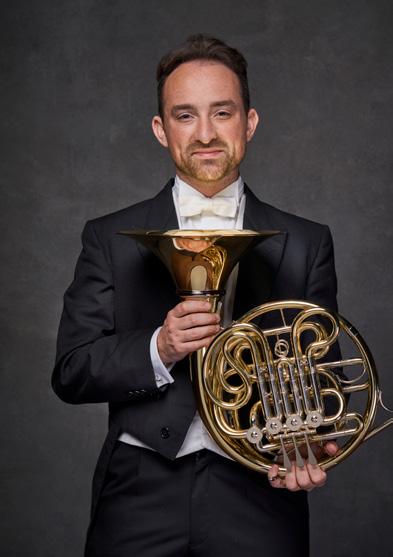
Witherby Publishing Group Charitable Trust
The RSNO is dedicated to bringing new works and outstanding new talent to audiences across Scotland. Our New Works Patrons contribute a significant legacy to orchestral music that extends beyond the RSNO, providing new music for orchestras and audiences around the world – for generations to come.
Susie Thomson
We are also grateful to those who give but wish to remain anonymous.
If you would like more information or would like to discuss how you can become part of the RSNO Family of Supporters, please contact Jenny McNeely, Head of Individual Giving and Partnerships, at jenny.mcneely@rsno.org.uk
We would like to thank all those who have donated to our new Play Your Part Appeal. The generosity of our supporters at this time is deeply appreciated.
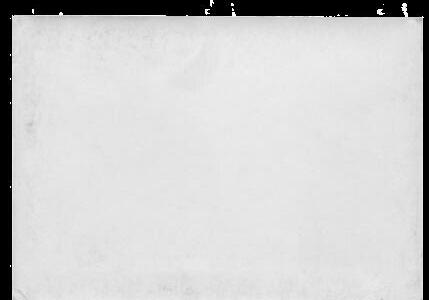
Leave a gift to the RSNO and ensure future generations can create their own Musical Memories of the Royal Scottish National Orchestra.
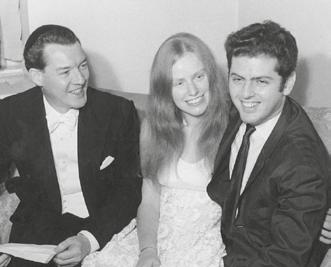
We all have special Musical Memories. It could be learning to play an instrument when you were a child, or a special piece of music that just left you breathless the first time you heard the Orchestra play it. Maybe it was seeing a soloist you had always wanted to hear, or just a great concert shared with friends. Memories such as these make music such an important part of our lives.
Leaving a gift to the RSNO in your will is the single most important way you can help us to make music and to create memories. Your legacy will support the work of the Orchestra for years to come, ensuring that we can continue to bring great music to a new generation of children, young people and adults right across Scotland. It is easy to leave a gift. After you have made provisions for family and friends, please think of the Orchestra.
Your gift is important to us and to everyone in Scotland who enjoys music. Contact your solicitor to draft a will or add a codicil to your current will.
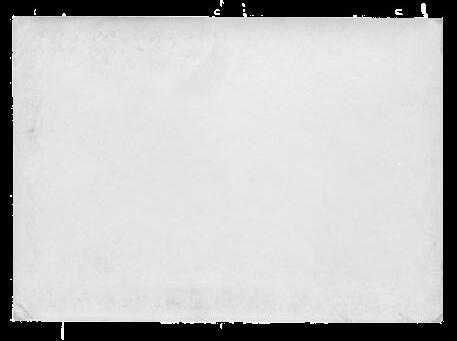
If your estate is subject to inheritance tax, a gift to a charity, such as the RSNO, is tax-free and will reduce the amount of tax payable to the Government. Please ask your solicitor for details.
For more information please visit rsno.org.uk/memories
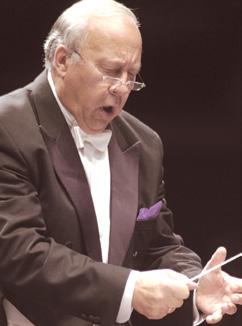
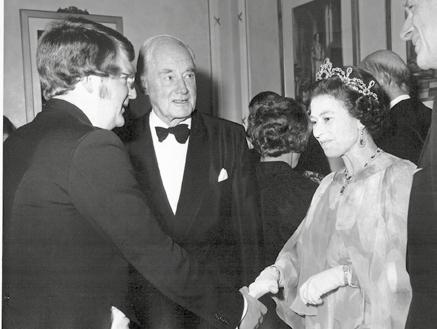

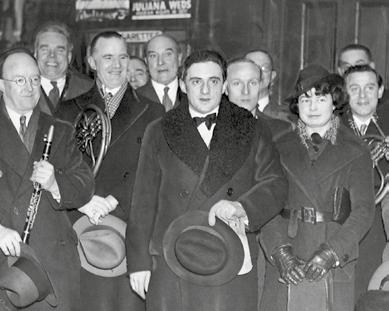
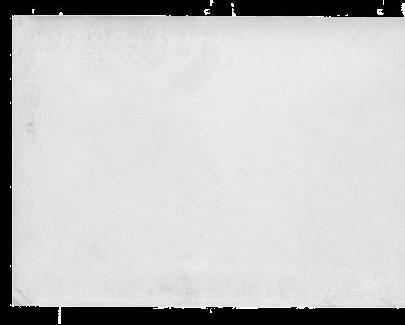

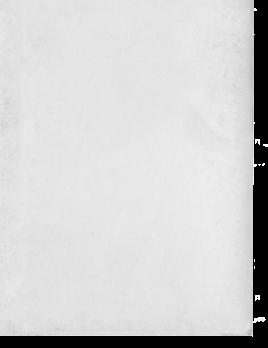
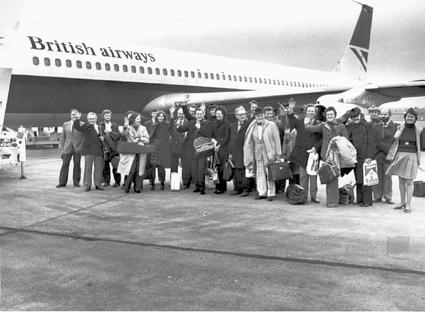
If you would like to discuss this further, please contact Torran McEwan, Individual Giving and Partnerships Officer, in the strictest confidence, at torran.mcewan@rsno.org.uk
To the many among you who have pledged to leave a gift already – thank you.
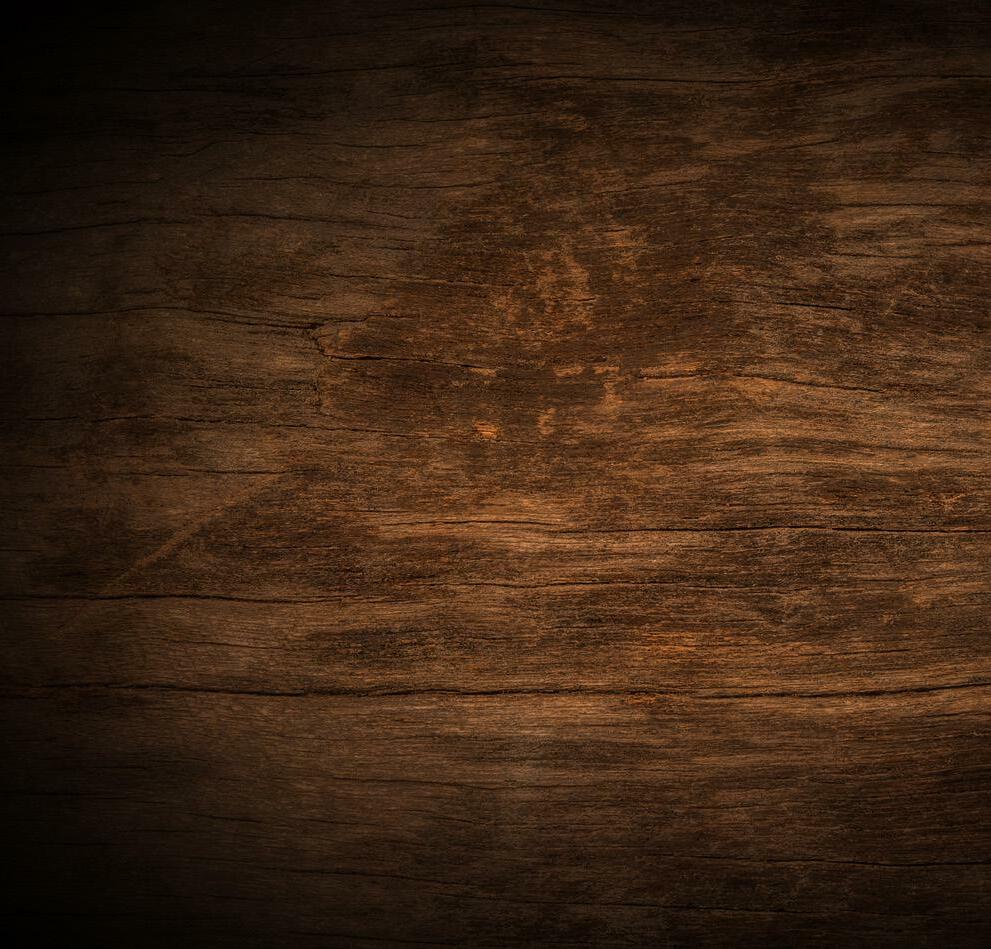

Charitable trusts and foundations have a distinguished history of supporting the RSNO, both on and off stage. From one-off donations for specific projects to multi-year funding for our flagship outreach initiatives, including the National Schools Concert Programme and Young Creatives, every grant in support of our work is truly appreciated. We are grateful to the following trusts and foundations for their generosity:
Aberdeen Endowments Trust
Alexander Moncur Trust
Alma & Leslie Wolfson Charitable Trust
Balgay Children’s Society
Barrack Charitable Trust
Bòrd na Gàidhlig
Boris Karloff Charitable Foundation Castansa Trust CMS Charitable Trust Cookie Matheson Charitable Trust Cruden Foundation
David and June Gordon Memorial Trust D’Oyly Carte Charitable Trust

Dunclay Charitable Trust Educational Institute of Scotland
Ettrick Charitable Trust Fenton Arts Trust Forteviot Charitable Trust Foundation Scotland Gannochy Trust Gordon Fraser Charitable Trust Harbinson Charitable Trust Hugh Fraser Foundation Iris Initiative
James Wood Bequest Fund Jean & Roger Miller’s Charitable Trust Jennie S Gordon Memorial Foundation
Jimmie Cairncross Charitable Trust John Mather Charitable Trust John Scott Trust Fund
JTH Charitable Trust
Leach Family Charitable Trust Leng Charitable Trust
Mary Janet King Fund McGlashan Charitable Trust MEB Charitable Trust Meikle Foundation Mickel Fund
Miss Jean R Stirrat’s Charitable Trust Mrs M A Lascelles Charitable Trust Music Reprieval Trust Nancie Massey Charitable Trust Northwood Charitable Trust

P F Charitable Trust Pump House Trust Radcliffe Trust Ronald Miller Foundation
R J Larg Family Trust Russell Trust
Samuel Gardner Memorial Trust
Scops Arts Trust
Scott Davidson Charitable Trust Solti Foundation
Souter Charitable Trust Stevenston Charitable Trust Tay Charitable Trust Thistle Trust Thomson Charitable Trust Thriplow Charitable Trust Tillyloss Trust Verden Sykes Trust WA Cargill Fund Walter Craig Charitable Trust Walter Scott Giving Group Walton Foundation Wavendon Foundation William Syson Foundation Zich Trust
We are also grateful to a number of trusts that wish to stay anonymous.
If you would like more information about our work and how you can make a difference, please contact Naomi Stewart, Head of Trusts and Projects, at naomi.stewart@rsno.org.uk


The Circle is a vital part of the RSNO family. Our community of music-lovers inspire and support us. Supporting us by joining the Circle will help us to bring music to so many people, from our Learning and Engagement programmes to our brand-new digital performances. As part of our community and family, we will keep in touch with our exclusive magazine Inner Circle, our Circle member webpage and invitations to special events throughout the year.
To find out more about joining the Circle please visit rsno.org.uk/circle or get in touch with Torran McEwan, Individual Giving and Partnerships Officer, at torran.mcewan@rsno.org.uk
To all our existing Circle members, thank you. Thank you for your unwavering support that allows us to continue sharing the joy of music.
Ms Catherine Y Alexander
Mrs A M Bennett
Dame Susan and Mr John Bruce Mrs Stina Bruce-Jones Stephen and Morny Carter Francesca and Eoghan Contini Mackie Sir Sandy and Lady Crombie Gavin and Kate Gemmell
Dr M I and Mrs C R Gordon Scott and Frieda Grier Judith and David Halkerston Iain MacNeil and Kat Heathcote Miss A McGrory Miss M Michie
Mr James Miller CBE Nicholas and Alison Muntz Meta Ramsay
Mr George Ritchie
Mr P Rollinson
Mr and Mrs W Semple
Mr Ian Taft Claire and Mark Urquhart Raymond and Brenda Williamson
Mr Hedley G Wright
Mr Anderson
Mr W Berry
Mr Alan and Mrs Carolyn Bonnyman
Mr John Brownlie
Miss L Buist
Mr and Mrs J K Burleigh Mrs E Gibb
Mr I Gow
Mr J D Home
Mrs J Kennedy Mrs A Lamont
Mr I C MacNicol
Professor J and Mrs S Mavor Mrs McQueen
Mrs A McQueen
Morag Millar
Mr Miller Mrs A Morrison Graham and Elizabeth Morton Mr and Mrs David Robinson
Mr D Rogerson
Mrs Ann M Stephen
Mr Alistair M and Mrs Mandy Struthers
Mr and Mrs M Whelan
Concerto
Dr K Chapman and Ms S Adam
Mr A Alstead
Mr N Barton
Miss D Blackie
Mr L Borwick
Neil and Karin Bowman
Dr C M Bronte-Stewart
Dr F L Brown
Mr and Mrs Burnside Ms H Calvert
Mr A Campbell
Sir Graeme and Lady Catto
Mr R Cavanagh
Myk Cichla
Dr J Coleiro
Ms R Cormack
Mr and Mrs B H Cross Christine and Jo Danbolt
Mr P Davidson
Mr J Diamond
Mr S Dunn
Mr C Ffoulkes
Mr and Mrs M Gilbert
Professor J R and Mrs C M Gray Mrs S Hawthorn Richard and Linda Holden Mr N Jack
Mr and Mrs S G Kay
Mr and Mrs W Kean Mrs M King Norman and Christine Lessels
Mr D MacPherson
Mr R G Madden
Mrs K Mair
Mr and Mrs Marwick
Mr S Marwick
Mr and Mrs G McAllister Ms M McDougall
Mr Rod McLoughlin
Mrs B Morinaud Mr A Morrison
Dr and Mrs D Mowle
Dr C C and Mr K R Parish
Mr and Mrs D Pirie
Ms A and Miss I Reeve Mrs E Robertson Miss L E Robertson
Mr D Rogerson Ross family
Dr and Mrs G K Simpson Mr and Mrs A Stewart Mrs M Stirling Mr G Stronach Dr G R Sutherland
Mr I Szymanski
Mr and Dr Tom Thomson
Mr J B and Mrs M B Watson Mr and Mrs D Weetman Mrs Wigglesworth Mr and Mrs Zuckert
Sonata Ms S Ace Mr K Allen Mrs P Anderson Ms D Baines
Mr O Balfour Mr N Barton Dr A D Beattie Mrs H Benzie Mr R Billingham
Dr and Mrs Blake Lord and Lady Borthwick Rev P Boylan John Bradshaw and Shiona Mackie Mr and Mrs Bryan Lady J Bute Mrs C Campbell Miss S M Carlyon Mr J Claxon Lady Coulsfield Adam and Lesley Cumming
Ms K Cunningham
Mr F Dalziel and Mrs S Walsh
Dr J K and Mrs E E Davidson Mr and Mrs K B Dietz Mrs C Donald Jane Donald and Lee Knifton
Ms P Dow
Mrs P du Feu
Mr John Duffy Mr and Mrs M Dunbar Mr R M Duncan Brigadier and Mrs C C Dunphie Mrs E Egan
Mr R Ellis
Miss L Emslie
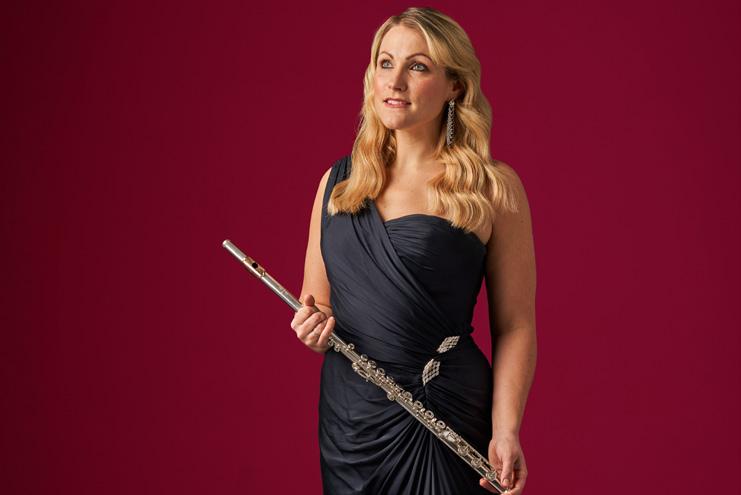
Mr R B Erskine
Dr E Evans
Mr D Fraser
Mr D and Mrs A Fraser Mr D Frew Ms J Gardner Dr P and Dr K Gaskell Mr W G Geddes
Mrs M Gibson
Mr D Gibson
Mr and Mrs A Gilchrist Mrs M Gillan
Mr R M Godfrey Mrs J K Gowans
Dr J and Mrs H Graham
Professor and Mrs A R Grieve Mr and Mrs G Y Haig Lord and Lady Hamilton Dr P J Harper Mrs I Harris
Dr N Harrison
Mr and Mrs R J Hart Mr D Hartman
Ms V Harvey P Hayes
Dr and Mrs P Heywood Bobby and Rhona Hogg Ms J Hope
Mr R Horne
Mr and Mrs F Howell Mr A Hunter Mrs A S Hunter
Professor R N Ibbett Ms J Incecik
Mr A Kilpatrick Professor and Mrs E W Laing Ms K Lang
Mr and Mrs J Lawson
G E Lewis
Mr R M Love
Dr D A Lunt
Mrs Lesley P Lyon
Mr and Mrs R MacCormick Mr D MacDonald
Mr and Mrs MacGillivray Lady Lucinda L Mackay
Dr A K and Mrs J C Martin
Mr and Mrs J Martin
Mr and Mrs D H Marwick Ms S McArthur
Mr G McCormack
Mrs L McCormick Mrs M McDonald Mr M McGarvie
Dr Colin McHardy Dr A H McKee
Mr Patrick McKeever Mr G McKeown Ms H L McLaren Mrs E McLean
Mr D McNaughton
Professor Mead
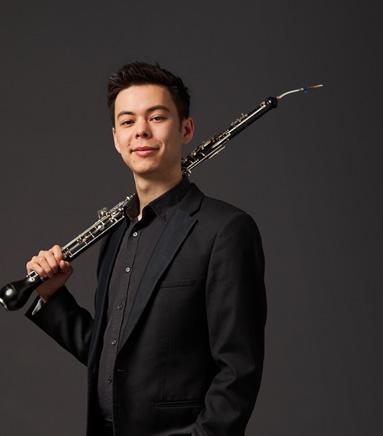
Mr and Mrs B Mellon Mr G Millar
Mr I Mills
Mrs P Molyneaux
Mr B Moon
Mr R Morley
Mr B and Mrs C Nelson Mr and Mrs K O’Hare Professor Stephen Osborne and Frank Osborne
Mr and Mrs K Osborne Dr G Osbourne
Ms S Park
Mr R Parry
Misses J and M Penman
Mr I Percival Dr M Porteous
Mr J W Pottinger Miss J A Raiker
Mr W Ramage
Mr M Rattray Ms F Reith
Mrs D A Riley
Dr and Mrs D Robb Mrs A Robertson Mr I Robertson Mr H and Mrs J Robson Ms A Robson Mrs E K Ross F Scott Mrs S Scott Mrs J Shanks Mr J A Shipley
Dr M J and Mrs J A Shirreffs Mr E Simmons
Dr Colin and Mrs Kathleen Sinclair Mr M Smith Mr M J Smith Mrs E Smith
Mr M A Snider
Dr and Mrs B Stack Mrs Lorna Statham Mrs T Stevenson Rev N and Mr R Stewart Mrs R F Stewart Mr and Mrs Struthers
Mr and Mrs B Tait Dr and Mrs T Thomson Mr C Turnbull Dr S Tweedie
Dr Morag Ward
Mr W Watters
Dr and Mrs T Weakley Mrs V Wells Mr G West Miss M Whitelaw Dr and Mrs D T Williams Mr D Woolgar
Mr R Young Mr C and Mrs L Yule
Thank you to all our members of the Circle, including those who wish to remain anonymous. Every one of you makes a real difference.





Dame Susan Bruce DBE
CHAIR
John Heasley
HONORARY TREASURER
Kat Heathcote
Linda Holden
Neil McLennan
Costa Pilavachi
Alistair Mackie
Phoebe Connolly
EXECUTIVE ASSISTANT
Nicola Shephard
EXECUTIVE ASSISTANT (MATERNITY LEAVE)
Dr Ingrid Bols
PLANNING OFFICER
Michael Cameron
DRIVER AND DEPUTY STAGE MANAGER
Emma Hunter DEPUTY ORCHESTRA MANAGER
Ewen McKay
HEAD OF ORCHESTRA MANAGEMENT
Richard Payne
LIBRARIAN
Tammo Schuelke
ARTISTIC PLANNING MANAGER
Brodie Smith
CONCERTS ADMINISTRATOR
Craig Swindells
STAGE AND PRODUCTION MANAGER
Matthias Van Der Swaagh CONCERTS ASSISTANT
Xander van Vliet
LIBRARY AND ORCHESTRA ASSISTANT
Christine Walker
CHORUS MANAGER
Andrew Stevenson
DIRECTOR OF LEARNING AND ENGAGEMENT
Brianna Berman PROJECT ASSISTANT
Samantha Campbell
HEAD OF LEARNING AND ENGAGEMENT (MATERNITY LEAVE)
David Robinson Gurjit Singh Lalli Jane WoodCOMMUNITY AND WELLBEING COORDINATOR
Chrissie Johnson
PROJECT MANAGER
Rosie Kenneally
LEARNING AND ENGAGEMENT OFFICER (MATERNITY LEAVE)
Rachel O’Connor
CREATIVE ASSISTANT
Rachel Pyke
PROJECT MANAGER
Dr Jane Donald
DIRECTOR OF EXTERNAL RELATIONS
Lisa Ballantyne
PARTNERSHIPS OFFICER
Ian Brooke PROGRAMMES EDITOR
Rosie Clark
EXTERNAL RELATIONS ADMINISTRATOR
Jessica Cowley
MARKETING MANAGER
Carol Fleming
HEAD OF MARKETING
Constance Fraser COMMUNICATIONS AND MARKETING OFFICER
Torran McEwan
INDIVIDUAL GIVING AND PARTNERSHIPS OFFICER
Jenny McNeely
HEAD OF INDIVIDUAL GIVING AND PARTNERSHIPS
Mirienne McMillan
SALES OFFICER
James Montgomery
DIGITAL CONTENT PRODUCER
Graham Ramage
GRAPHICS AND NEW MEDIA DESIGNER
Dr Naomi Stewart
HEAD OF TRUSTS AND PROJECTS
Sam Stone INFORMATION SERVICES MANAGER
Cllr Edward Thornley
THE CITY OF EDINBURGH COUNCIL
Company Secretary
Gordon Murray
RSNO COUNCIL
Baroness Ramsay of Cartvale
CHAIR
Ms Ruth Wishart
Angela Moreland
CHIEF OPERATING OFFICER
Abby Dennison
FINANCE ADMINISTRATOR
Alice Gibson
FINANCE ADMINISTRATOR
Ted Howie
FACILITIES COORDINATOR
Lorimer Macandrew
VIDEO PRODUCER
Sam McErlean
SOUND ENGINEERING INTERN
Irene McPhail
ACCOUNTS AND PAYROLL ASSISTANT
Calum Mitchell VIDEO PRODUCTION INTERN
Hedd Morfett-Jones DIGITAL MANAGER
Susan Rennie
FINANCE MANAGER
Jade Wilson
FINANCE ASSISTANT
National
Lorna Rough
